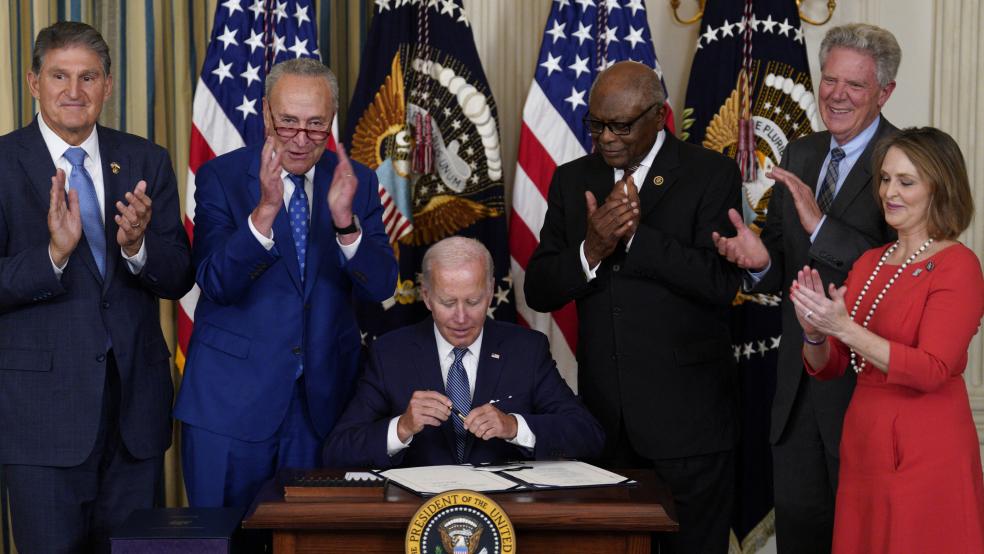The ad wars have begun.
As we mentioned yesterday, now that President Joe Biden has signed the Inflation Reduction Act into law, Democrats will be looking to sell the public on the benefits of the legislation. Republicans, meanwhile, are trying to define the bill in voters’ minds as a threatening boost to the Internal Revenue Service and a broad-based tax hike in the midst of a recession — a move, they argue, that violates Biden’s pledge not to raise taxes on people making less than $400,000 a year.
Reuters’ Trevor Hunnicutt reports that Democrats and their allies have big plans to back the new law: “In the coming days, millions of dollars will flow into congressional races from groups outside the Democratic Party to tout Biden's $430 billion climate, healthcare and tax bill called the ‘Inflation Reduction Act,’ aides and allies to Biden tell Reuters.”
That spending may be crucial, as Hunnicutt notes that six in 10 voters either haven’t heard of the Democratic bill or know almost nothing about it, per a Reuters/Ipsos poll conducted earlier this month.
Republicans have sought to fill that knowledge gap, often by mischaracterizing the Democratic legislation.
In one of the latest attacks on the package, Sen. Rick Scott (R-FL) this week published an open letter advising job seekers not to apply for IRS positions funded by the new law. “These new positions at the IRS will not offer you the long-term job stability you may expect from a position with the federal government,” Scott wrote. “Put another way: this will be a short-term gig. Republicans will take over the House and Senate in January, and I can promise you that we will immediately do everything in our power to defund this insane and unwarranted expansion of government into the lives of the American people.”
Scott’s letter included other claims about the new law that have been debunked. And NBC’s Sahil Kapur writes that Scott’s threat to eliminate new IRS jobs is, for now, an empty one. “It's unclear if Republicans will win full control of Congress — and if they did, President Joe Biden would still have veto power to prevent them from undoing his signature legislation,” Kapur notes. “But the [Scott] missive represents a dramatic escalation in Republican attacks on a provision of the Inflation Reduction Act bolstering the IRS — part of a strategy to stir up anti-government voters with deep misgivings about the agency ahead of the 2022 midterm elections.”
The bottom line: It’s not clear yet how central a role the Inflation Reduction Act will play in midterm election campaigning, given that other issues — from abortion rights to Donald Trump — could loom large. For now, though, Democrats have increased reason for optimism that the legislative victory will translate to improved results at the ballot box. A new Politico/Morning Consult Poll finds that Biden’s approval rating edged up 3 percentage points over the past week. Still, it remains at a less-than-robust 42%.




